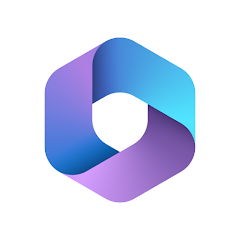Facebook Lite vs. Facebook: What’s the Difference?
13th November 2025
Diane Marley
As social media continues to influence online interactions, Facebook remains a prominent entity, providing a diverse range of social media experiences tailored to meet various user needs, including mobile app accessibility. This article examines the key features of both Facebook and its more streamlined counterpart, Facebook Lite. We will analyze their main functions, evaluate the advantages and disadvantages of each platform, including features comparison and app design, and assist you in determining which option aligns best with your lifestyle and internet usage preferences. Whether you seek a comprehensive social networking experience or a more simplified interface, there is an appropriate choice available to suit your requirements.
Overview of the Two Platforms
In the contemporary digital landscape, social media platforms such as Facebook and its streamlined counterpart, Facebook Lite, are essential for promoting user engagement and connectivity across a wide range of demographics.
Although both platforms share the primary objective of connecting users, they exhibit significant differences in design, performance, and overall user experience, catering to diverse user requirements including data consumption, accessibility, and device compatibility.
Facebook provides a feature-rich mobile application optimized for high-end devices, whereas Facebook Lite specifically addresses the needs of users with lower-end mobile devices or those located in areas with limited internet connectivity, optimizing battery consumption and storage space, by prioritizing resource efficiency and a minimalist design approach.
Features of Facebook
Facebook provides a comprehensive suite of features aimed at enhancing user interaction, establishing itself as one of the most prominent social media platforms worldwide.
Notable features include a dynamic user interface that delivers a personalized news feed, multimedia sharing capabilities for images and videos, and enhanced privacy settings, and real-time notifications regarding user interactions.
The platform regularly implements updates that introduce new functionalities and enhance overall application performance, thereby ensuring that users remain connected with friends and family while enjoying a seamless user experience.
Main Features and Functions
The primary features of Facebook are centered on enhancing user engagement through a variety of functionalities, including real-time notifications, messaging, and multimedia sharing, which collectively contribute to its extensive user base.
The platform's usability is optimized by a user-friendly interface, facilitating easy navigation and interaction with content in the news feed, enabling users to engage with posts and share their experiences through images and videos.
Real-time notifications keep users informed about their friends' activities and interactions, supported by multi-language support, thereby encouraging participation and fostering a sense of community. The messaging feature provides instant connectivity, streamlining communication through texts, voice, or video calls, which enhances interpersonal relationships.
The multimedia sharing capabilities, encompassing high-quality photo and video uploads, not only foster creativity but also increase emotional engagement with content, prompting users to spend more time on the platform. Recent updates have improved loading times and mobile responsiveness, showcasing tech advancements, thereby enhancing overall performance metrics.
User feedback indicates that these enhancements lead to increased satisfaction, ultimately contributing to a rise in daily active users and interaction rates.
Features of Facebook Lite
Facebook Lite is specifically developed as a lightweight version application focusing on resource efficiency that provides essential features for users with limited internet connectivity or those utilizing low-end devices, ensuring offline access.
It preserves core functionalities, including the ability to share updates, send messages, and browse the news feed, while considerably minimizing data usage and application size.
This design ensures a more efficient experience for users in regions with inadequate connectivity or for individuals seeking to conserve mobile data, minimizing app size requirements.
Key Differences from Facebook
The primary distinctions between Facebook and Facebook Lite are fundamentally based on their design philosophy and intended user demographics, emphasizing customization and application performance. Facebook operates as a comprehensive social media platform, providing a rich user interface along with a wide array of functionalities, including advertising options.
In contrast, Facebook Lite is designed with an emphasis on low data consumption and optimal performance, making it particularly suitable for users with limited bandwidth or those utilizing low-end devices, highlighting platform compatibility.
This divergence greatly influences app performance; the standard version incorporates high-resolution images, animations, and various interactive elements, which may occasionally result in slower loading times, particularly in areas with suboptimal connectivity, affecting download speed and latency.
In contrast, Facebook Lite offers a streamlined interface, ensuring quicker access to essential features such as messaging and news feeds, even in environments with slower network speeds.
Regarding functionality, the more comprehensive app may present users with a plethora of tools and options that can be overwhelming. In comparison, the Lite version simplifies the user experience, catering to individuals who prioritize efficiency and ease of use.
These differences can significantly impact user satisfaction, especially in developing countries where data costs are a significant concern. Users in these regions tend to prefer platforms that ensure reliability without incurring excessive data usage.
Pros and Cons of Using Facebook
Utilizing Facebook offers a range of advantages and disadvantages that influence user satisfaction and the overall experience.
A significant benefit of the platform is its extensive features that facilitate user interaction and content sharing, thereby enhancing social connectivity and engagement.
Conversely, users may encounter certain drawbacks, including privacy concerns, issues related to data usage, and the potential for excessive notifications, all of which can diminish the overall user experience.
Advantages and Disadvantages
The advantages of utilizing Facebook include its extensive network for social interactions and a variety of features that enhance user engagement, fostering brand loyalty and community support, such as customizable privacy settings and efficient notification management.
This platform enables users to connect with friends, join groups based on shared interests, and follow brands and public figures, thereby fostering a rich community and facilitating interaction. Recent statistics indicate that over 2.9 billion monthly active users take advantage of these features, reflecting a strong preference for connectivity and content sharing.
However, the extensive functionalities may overwhelm new users, resulting in an initial learning curve. Therefore, it is essential to carefully consider these advantages in light of potential drawbacks, including the risk of information overload, privacy concerns, and the likelihood of encountering misinformation within a densely populated digital environment.
Pros and Cons of Using Facebook Lite
Facebook Lite presents a range of advantages and disadvantages, rendering it a suitable choice for users with particular requirements.
The foremost benefit of Facebook Lite is its streamlined design, which facilitates low data consumption and optimal performance on lower-end devices or in regions with limited connectivity.
However, users may face certain limitations in features when compared to the full version of Facebook, impacting interaction and connectivity options, which could affect their overall social media experience.
Advantages and Disadvantages
The advantages of utilizing Facebook Lite encompass enhanced performance on low-end devices, reduced data consumption, and an overall streamlined user experience that effectively addresses the needs of users in areas with connectivity challenges.
However, it is important to note that users may forfeit certain advanced functionalities available in the full Facebook application, which could restrict their interaction capabilities.
For example, the lighter version facilitates seamless scrolling through news feeds even in regions with weaker signals, enabling users to remain connected without interruptions, demonstrating mobile optimization.
Many users, particularly in emerging markets, have expressed appreciation for the application's speed and efficiency, with one user remarking, "With Facebook Lite, I can easily catch up with friends without worrying about my data limit."
Conversely, some users have indicated that the absence of features such as Facebook Stories and Marketplace limits social interaction and the ability to engage in local selling activities, highlighting app evolution.
This trade-off between performance and missing features is a crucial consideration for prospective users, as they seek to strike a balance between functionality and resource conservation.
Which Platform is Right for You?
The decision between Facebook and Facebook Lite is contingent upon the specific needs and preferences of the user, considering data usage and installation requirements. Key factors such as connectivity, device capabilities, user retention, and intended app usage play a significant role in this choice.
For users with high data consumption habits and access to modern smartphones, the full Facebook application may be the more suitable option. Conversely, individuals in areas with limited internet connectivity or those utilizing lower-end devices might find the efficiency and simplicity of Facebook Lite to be more advantageous.
Factors to Consider
When evaluating the choice between Facebook and Facebook Lite, several critical factors must be considered that can significantly affect the mobile experience. These factors include the app's compatibility with the device's operating system, data consumption habits, and the desired range of functionalities.
Users should also reflect on their typical social media interactions and user preferences, as these preferences will guide them toward the platform that best aligns with their social connectivity needs.
Furthermore, user behavior is a pivotal aspect of this decision-making process. Individuals in areas with limited internet connectivity may prefer Facebook Lite due to its reduced data usage, while those seeking a more feature-rich experience might opt for the full application.
Additionally, the availability of alternative applications and similar platforms, including app reviews and reviews comparison, may influence users' choices, as many individuals explore various apps to enhance their social networking experience.
Ultimately, the need to strike a balance between speed and accessibility against the richness of features, along with considerations of security features and data privacy, can significantly impact overall user satisfaction and engagement, thereby shaping the manner in which individuals connect with their social circles.
Final Thoughts and Recommendations
Both Facebook and Facebook Lite fulfill distinct roles and cater to different user needs, with the selection between them hinging on individual preferences and requirements.
For users desiring a comprehensive social media experience equipped with advanced features, the standard Facebook application is the more suitable option. In contrast, Facebook Lite is particularly advantageous for those prioritizing performance and data efficiency.
Recognizing these differences can significantly enhance one's social media interactions. Users who regularly share multimedia content and engage with extensive networks may find that the full version aligns more closely with their lifestyle, as it offers a rich array of features, including video calls, marketplace functions, and app permissions management.
Conversely, individuals in areas with limited connectivity or those aiming to minimize mobile data usage will likely appreciate the lightweight design of Facebook Lite, which ensures accessibility while maintaining essential features and reducing digital footprint.
Ultimately, assessing personal usage habits, device capabilities, bandwidth availability, and account accessibility will enable users to select the platform that best aligns with their social media experience.
Frequently Asked Questions
What is the difference between Facebook Lite and Facebook?
Facebook Lite is a lighter version of the regular Facebook app, designed for use on low-end devices and in areas with poor internet connectivity. Facebook, on the other hand, is the standard version of the app with more features and a larger file size.
Do both versions have the same features and development updates frequency?
No, Facebook Lite has a simplified design and does not include some features such as live streaming, games, and Facebook marketplace. However, it still allows users to connect with friends, share posts, and access basic features like news feeds and notifications.
Which version is better for slow internet connections?
Facebook Lite is specifically designed for use in areas with slow internet or poor connectivity. It uses less data and can be accessed quickly, making it a more suitable option for those with slower internet speeds.
Do I need to have a Facebook account to use Facebook Lite?
Yes, just like the regular version, you will need a Facebook account to use Facebook Lite. You can log in with your existing account or create a new one within the app.
Can I switch between Facebook Lite and Facebook?
Yes, you can switch between the two versions by simply logging in and out of each app. However, your login information and settings will not be synced between the two versions.
Which version is better for older devices?
Facebook Lite is optimized for older devices and uses less storage space and processing power. It is a better option for those with older or budget devices that may struggle to run the regular Facebook app smoothly.















